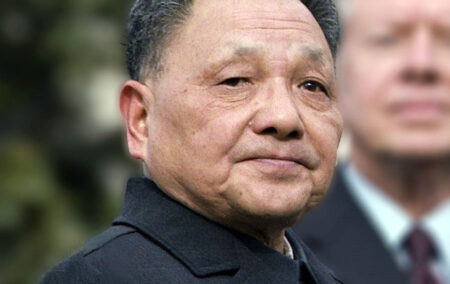In the election on Wednesday, which party offers the obvious, proven policies for improving the lot of working class people in South Africa?
As far as I can see, no party offers to improve the lot of the workers.
Workers’ Day, a public holiday in South Africa, often called May Day elsewhere, fell exactly a week before this election. It was accompanied by long tedious speeches from politicians and trade union leaders, all agreeing (correctly) that unemployment is our biggest economic problem and all proposing policies that would make it worse.
It is interesting to look at the history of political movements and leaders elsewhere and at other times, and their policies for the workers as well as the results. Communism, conceived by Karl Marx to usher in a final age of Worker Control and Worker Happiness, has enslaved workers everywhere and reduced them to grinding poverty. Workers always want to flee from communist countries to capitalist countries, never the other way round.
Nazism is more complicated. Hitler renamed his party the National Socialist German Workers’ Party. His socialism was similar to communism but with vital differences. He saw good and bad in terms of race not class and, unlike the communist leaders, he allowed the capitalist bosses to continue to run their factories, although under his orders. One of his acts upon coming to power in January 1933 was to declare May Day a public holiday, in keeping with his pretensions to represent the workers. On 1 May he held big celebrations for the workers. On 2 May he arrested all the trade union leaders and ended their control over the workers. His supreme economic feat, achieved nowhere else, was to restore full employment. He did this in a country that was already highly developed by providing stability and certainty, and by priming the economic pump with massive military expenditure. His success might not have held if the war had not happened.
Most interesting of all is the experience of a capitalist economy under a communist political system. This happened in China from about 1978 under one of the great heroes of the 20th Century, Deng Xiaoping. He saw the ruin that Mao Zedong’s communism had wrought and implemented “economic reforms”. What this meant in effect was rip-roaring free capitalism, with no labour laws, no minimum wages, no repressive trade unions and everyone free to trade and do business among themselves as they wished – probably the freest free enterprise ever, but with no political freedom. The result was the most spectacular rise in living standards in the history of the world and the most spectacular reduction in poverty. It has made China the second most powerful economy in the world today. The African National Congress (ANC mustn’t be deluded into thinking it can do what China did, however.
South Africa’s catastrophic unemployment is aggravated by the ANC partnering with the largest trade union federation, the Congress of South African Trade Unions. This alliance protects the employment and wages of the workers who are union members and employed, with rigid labour laws which deny space for the unemployed workers to be employed. Our restrictive labour laws make poor employers too frightened to employ workers. Rich trade union leaders and snobbish academics, who opposed the minimum wage as being too little, in effect are saying it is better for a poor woman to starve to death or to turn to prostitution or to live with her baby on the R405 a month child grant than to get a wage of R3 400 a month.
The solutions are simple. Scrap or ease our dreadful labour laws. Then we shall see rapidly reduced unemployment and the lifting of people out of poverty, as we saw in China. Scrap the wicked minimum wage, which only increases poverty and inequality. Take power from the trade union bosses and give it to the workers, which is what Margaret Thatcher did in Britain. Thatcher made secret ballots compulsory for union members in deciding whether to strike or not. This meant ordinary workers were freed from the tyranny of the union thugs who intimidated them through the open show of hands.
Hitler and Deng Xiaoping reduced unemployment. We don’t want to copy them although their results hold lessons. Deng instituted complete economic freedom and kept a complete lack of political freedom. We want both economic and political freedom. We want workers free to vote as they wish, to decide whether to accept a job or not, and to vote whether to go on strike or not.
In short, we want to free the economy and the workers. The ANC is beholden to the rich thugs in the unions who oppress the workers. The Economic Freedom Front, representing the rich black bourgeoisie, wants to return us to the feudal ages, where ordinary people are not allowed to own land. What does the Democratic Alliance want? On policy, not much different from the ANC, not daring to overthrow our ruinous labour laws. In practice, they have done better for employment in the Western Cape.
I can’t see a single party whose policies will improve the fate of working people. So how to vote? I suppose for the party that will damage them least.
Notes:
1. Nazis and Communists: Documentation for all I say above from Alan Bullock’s history of Hitler and Stalin, Shirer’s of the Third Reich, and elsewhere.
2. Data on our unemployment and labour laws from SAIRR, StatsSA and the government website.
3. Never sure about capital letters for Communism (communism) and Capitalism (capitalism).
Andrew Kenny is a writer, a classical liberal and an engineer.
If you like what you have just read, become a Friend of the IRR if you aren’t already one by SMSing your name to 32823 or clicking here. Each SMS costs R1.’ Terms & Conditions Apply.
The views of the writer are not necessarily the views of the IRR.

